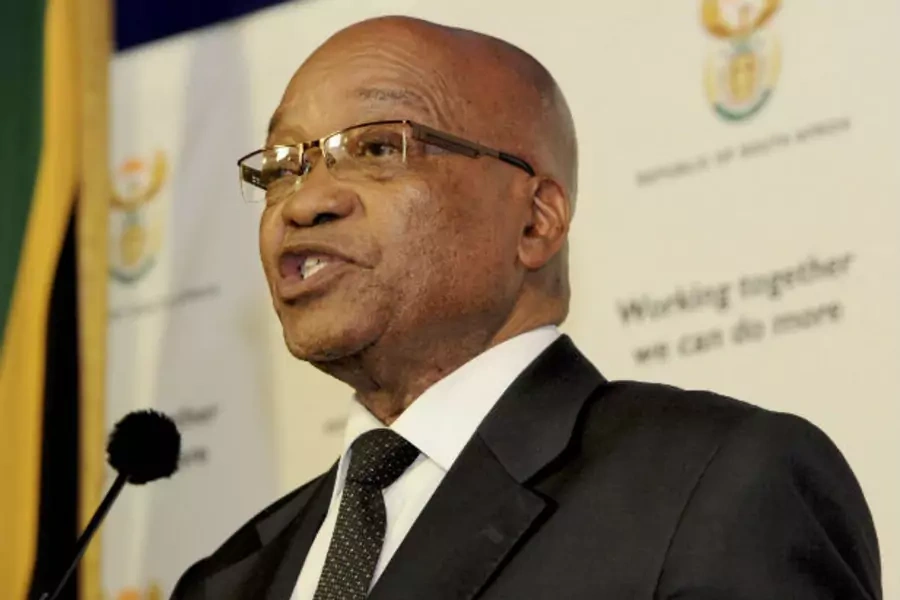More on:
The “slings and arrows of outrageous fortune” are hitting President Jacob hard.
Earlier this week, there was the controversy over a publicly exhibited oil painting that strongly resembled Zuma with his genitals exposed, which the president’s party tried to have removed. The episode reminded the public of Zuma’s polygamy and his rape trial (he was acquitted.)
Then, there was the May 24 speech by former University of South Africa (UNISA) principal Barney Pityana commemorating the establishment of the Organization of the African Union and its successor, the African Union, in which he strongly criticized the governing African National Congress for "institutional mediocrity." That would mean President Jacob Zuma. Pityana, an Anglican priest and theologian, is a longtime ANC member and human rights advocate. He has been prominent in the Black Consciousness Movement.
In the audience at the UNISA lecture was former youth league leader Julius Malema, a Zuma enemy who was recently expelled from the ANC. The lecture crowd seemingly adored him. Malema and his posse, exceeded in size only by Mbeki’s, wore red t-shirts with the face of Zimbabwe’s President Robert Mugabe, thereby reminding all and sundry of Malema’s calls for nationalization of the mines and seizure of white-owned agricultural land without compensation. At least in part, the crowd’s adulation of Malema should be seen as hostility to Zuma’s leadership.
Looking toward the December ANC party convention in December, Africa Confidential
is running a story on Zuma’s likely challengers for president of the party. It credibly identifies: Cyril Ramaphosa, an architect of the 1994 transition and now a business tycoon; Kglama Motlanthe, the sitting vice president; and Tokyo Sexwale, now a minister and former premier of Gauteng (Johannesburg.) Like Nelson Mandela, Sexwale was imprisoned on Robben Island during apartheid days. Zuma defeated Mbeki for the party presidency at the end of 2007. Subsequently in 2008, the ANC Executive Committee recalled Thabo Mbeki, who resigned the state presidency. The vice president, Motlanthe, served as president until the next elections. Should Zuma be defeated in December, a similar scenario might unfold.
It is still early days. Active campaigning for the presidency is supposed to begin only in October. But there is already much speculation about possible alliances for and against Zuma. It should also be remembered that despite the seeming reverses of the past week, Zuma is a canny politician with strength in KwaZulu-Natal (he is a Zulu) and in the Eastern Cape, a bastion of the ANC. Nevertheless, at present, it does not look as though the ANC convention will be a cake walk for him.
More on:
 Online Store
Online Store

